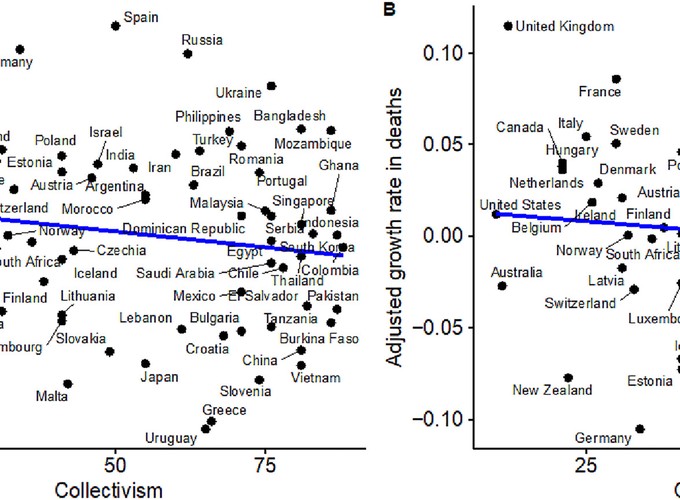Cultural influence on COVID-19 cognitions and growth speed: The role of cultural collectivism
Abstract
Major challenges faced by humans often require large-scale cooperation for communal benefits. We examined what motivates such cooperation in the context of social distancing and mask wearing to reduce the transmission intensity of the coronavirus pandemic (COVID-19). We hypothesized that collectivism, a cultural variable characterizing the extent that individuals see themselves in relation to others, contributes to people’s willingness to engage in these behaviors. Consistent with preregistered predictions, across three studies (n = 2864), including a U.S. nationally representative sample, collectivist orientation was positively associated with intentions, positive beliefs, norm perceptions, and policy support for the preventive behaviors. Further, at a country level, more collectivist countries showed lower growth rates in both COVID-19 confirmed cases and deaths. Together, these studies demonstrate the role of collectivism in reducing COVID-19 transmission, and highlight the value of considering culture in public health policies and communications.
